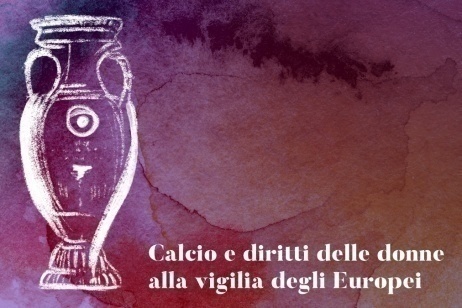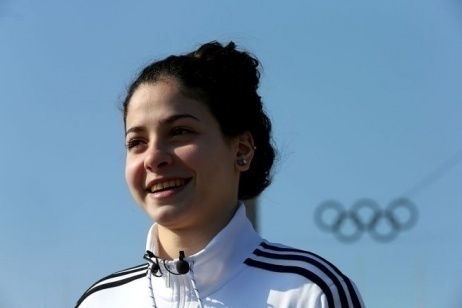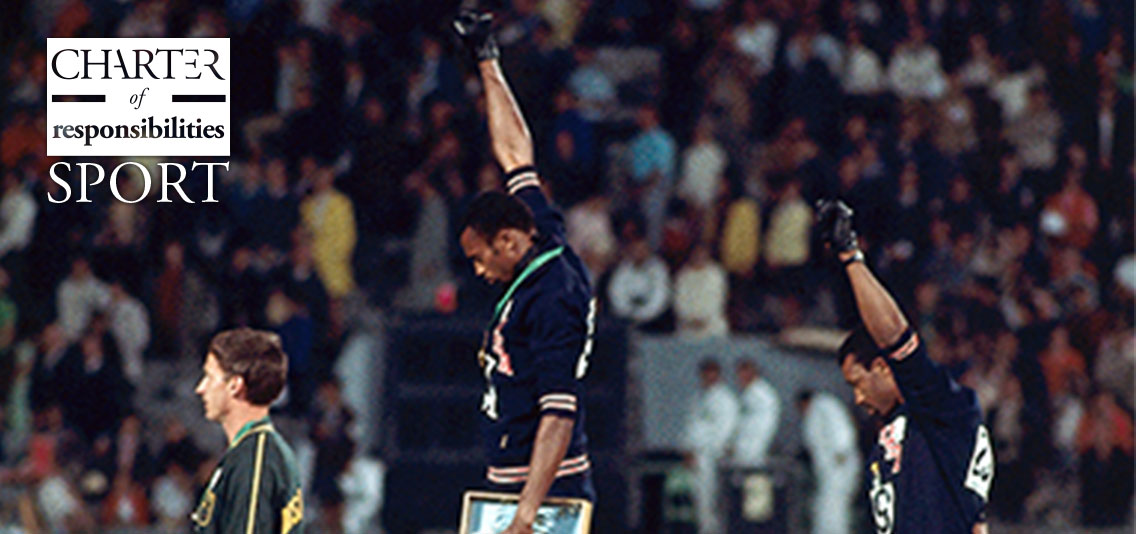
Charter for sport
Good competition. Tips for responsible sport
Sport, like any other human activity, can contribute to strengthening our character, friendship and respect for others.
Competitive spirit that stimulates to improve our body and strengthen our personality always implies a relationship between human beings.
Even in solitary sports, we imagine we are competing with others, who are encouraging us to become better.
Due to relationships involved in sports, since ancient Greek times, sports competition has indicated, for better or for worse, the degree of civilization of human kind.
It can be used by dictatorships to convey the racist message of the superiority of a race or nation and it can become a tool of ideological propaganda for totalitarian regimes; or it can become the expression of moral wealth of a democratic society that enhances equality in sports contention and the purpose of which is always exalting individual or collective performance in a spirit of friendship.
As Greek poet Hesiod realized, there is always an opportunity of good competition, which strengthens the character and the will of individuals and educates to respect opponents, and bad competition, which instead exalts the ego of superiority and aims at annihilating the other.
In recent years the most significant experience of good agonism has come from South Africa, where, after the years of apartheid, President Nelson Mandela wanted the national rugby team to become the vehicle for reconciliation of white and black people, the symbol of possible integration in his country.
Conversely, the football match of 13th May 1990 at Maksimir stadium between Dinamo Zagreb and Red Star Belgrade unleashed a bloody guerrilla war between the relevant supporters that anticipated the civil war in former Yugoslavia.. Supporters in that stadium did not cheer for sport, but rather considered sport competition as the fight against an enemy that had to be destroyed. That match, exploited by nationalists, therefore laid the foundations for the imminent war. Opposing footballers were hated and the ball was to be replaced by weapons.
Today, in a dangerous time where hatred and nationalisms are coming back, where in the name of a religion massacres are committed, where black athletes are insulted in stadiums, where an Arab athlete is prevented from competing and shaking hands with an Israeli athlete, it is necessary to bring back the values of good and positive competition in sport.
As history taught us, sometimes sport can save the world, because the behaviour of athletes, supporters and even sport journalists can positively impact on the democratic life in our societies.
Exercising sports with an Olympic spirit helps peace, cohabitation and sows good among human beings.
Every athlete should be aware that in competition it is always the presence of the other that pushes him or her to improve, and for this reason he or she should act fairly towards the other and respect his or her dignity.Agonism does not divide human beings in a brutal struggle of annihilation, but rather unites them in the same path in the sports agora. Due to their popularity, athletes become an example for society; for this reason, as Greek philosophers hoped, they should not be caught up in hybris, that is seeking power over the others and use illicit means. Athletes at all levels are really great when they recognize their limit and are always willing to recognize the value of their opponents. According to Greeks, sport teaches that there will never be the best ever, because in the constant cycle of life better athletes will always follow. This is the beauty of sports competition, where in stadiums, in swimming pools, in athletic fields, athletes compete with each other in the same way as responsible individuals deal with each other in institutions. Dialogue and competitive spirit have something in common as the constant search for truth, like that of sports performance, never ends and brings people together in a common destiny. It is no coincidence that the word agorà (the place of assembly and democracy for citizens) and agon (agonism) have the same root in Greek.
In turn, viewers should be educated to cheer positively and never against their team’s opponents, because sports are a relationship between human beings where enemies should never exist and where supporters’ favourites cannot always turn out to be winners. Cheering one’s own team as well as opponents’ in defeat in stadiums, recognizing the human limit of athletes, is a proof of sporting maturity.
Applauses and the greatest recognition should go to athletes who have taken their responsibility for the salvation of human kind in the face of major emergencies, as it happened to great footballers who saved Jews during the Holocaust, to those athletes who fought to defend human dignity in Africa and Latin America, or those athletes who did not bow to the submission of women and to religious impositions in the Middle East and Asia.
Their stories are not limited to stadiums or the sports field: their examples have a crucial ethical meaning for the sporting agony.
Recognizing the value of these individuals and telling their gestures to athletes offers moral parameters to behave in a worthy and honest way in the same sports competition. Those who appreciate the altruism of great cyclist Gino Bartali, who hid hundreds of false documents in the barrel of his bicycle to save Jews during fascism; the sacrifice of Ethiopian marathon runner Feyisa Lilesa, who arrived at the finish line with his hands crossed to denounce the persecution of Oromos and thus lost his place in the team and could no longer go back to his country; the courage of Syrian swimmer Yusra Mardini, who became the champion of refugees of her war-torn country; of Algerian middle-distance runner Hassiba Boulmerka, who struggled to run without covering her face, are more respectful of opponents and reject racist behaviour and ethnic, religious or gender discrimination.
Sport is not a separate island, as Primo Levi would say today, because inside it the best behaviours of society can occur, or become a place where the worst germs are nourished.
This is why it is necessary to gather and disseminate the stories of the Righteous of sport, to create a spirit of emulation in stadiums and in sports fields.
With this aim, Gariwo proposes the annex to 2017 Charter of Responsibility, on the theme of sport. Let us imagine that everyone, whether a supporter, athlete or sports journalist, can personally take on these values and ethical behaviours.
Supporters
- Sport is that wonderful thing that makes us tremble for our favourite team, for an athlete we have chosen as our favourite, for the exploits of an opponent whose top class we recognize. There is greatness in victory as there is in defeat. The other is never an enemy. We are all part of a great show, each with his or her own identity, values, hopes. We must get used to cheering positively, for our team and our athletes, and never cheer with malice, against opponents.
- Racist insults, anti-Semitic slogans, hatred of any kind have nothing to do with sport. We must never stop repeating it.
- We strongly commit to suppressing these sick behaviours. Staying away from them is not enough. It is crucial to act, to do something real so that stadiums and supporters are completely immune from hatred.
- We commit to being an example for young people. This does not mean that cheering cannot be passionate, goliardic, sometimes a little colourful. But there is a threshold in respect for other people’s dignity and one must never go beyond it.
- We dream of a third half in every sport, in which, at the end of competitions, all protagonists shake hands with each other.
- We also dream of stadiums where we go to cheer together with our family peacefully. This is the reason why sport is above all celebration, a hymn to life. And there is nothing more beautiful than celebrating it with those who are most dear to us.
- We must not allow organized groups that claim cheering as their exclusive right, to stand as our representatives and promote behaviours that lead to hatred and racism, undermine civil coexistence, create division, and foster aggression in people. We must always remember that civil war and ethnic cleansing in former Yugoslavia stemmed from a football match between Dinamo Zagreb and Red Star Belgrade. We must follow the example of Nelson Mandela, who saw sport in South Africa as an extraordinary tool for reconciling black and white people. When we go to the stadium, we have to think that friendship between athletes and supporters is the most beautiful message we can give to our country. It seems difficult to hug or shake hands with a supporter of the opposing team when one’s own team loses, but this small gesture embodies the great human value of sport that teaches us to respect the others.
Athletes
- As athletes and sportsmen and sportswomen, we are inspired by the principles set forth in the Olympic Charter, which are the basis of every sporting competition. In particular, we must refer to its primary objective, which is to put sport at the service of harmonious development of human kind, to foster a peaceful society that cares about respecting human dignity. We must never forget that we challenge ourselves in stadiums to feel united in competition and not to create enemies.
- As athletes, aware of our public role, we commit to being an example for all supporters. And therefore to behaving fairly with our opponents, not to resort to doping and illicit means, not to use any offensive words, to guide our conduct according to the rules of fair play.
- We must also help sports clubs in which we practice to react decisively and firmly when they are victims of blackmailing. Above all we must fight against the attitude and will - of managers, coaches and even some teammates - to “win at all costs and by all means”.
- Practicing sport is our job, but it is also a source of joy for ourselves and for those who follow us. We must never forget how lucky we are.
- Words are important. And we must always take into account, also due to our popularity, that our thoughts can affect society today and above all younger people.
- The keyword is respect: of coaches, opponents, referees. For example, we cannot allow sexism between us. Sport educates us first of all to equality between human beings, between women and men.
- Another keyword is consistency. The consistency of always saying no to racism and any manifestation of hatred, even if it means taking sides against some of our supporters. This is the world in which we want to live: a world where we are all equal and respect differences. As sportsmen and sportswomen, always used to spend time in the locker room, to share spaces, dreams and hopes, different and equal at the same time, we know it well.
- As sportsmen and sportswomen, we are yesterday’s children who have fulfilled their dreams as adults. We want to say this to children: dream with us and do everything you can to make your dreams come true. And if you do not achieve your goals, it will not be an issue, as at least you will have tried. This is what really matters. Even those who do not become champions and practice sports are sportsmen and sportswomen like us. We are messengers who must convey to everyone the beauty of sport as enrichment of the human person.
Journalists
- Being a sports journalist implies taking responsibility. Our articles, our comments on television or the radio must be guided by this awareness.
- There are millions of people who do not see sport facts that are told, but who experience them through our chronicles and comments. We have the duty to be as objective, calm and balanced as possible. Supporters are influenced by our words, we must consciously use them to educate to friendship and respect in the name of sport.
- We must emphasize fairness in sport, virtuous behaviours of athletes at the technical, competitive and human level. We have the task of showing the value of athletes regardless of their origins, religion, team or national team in which they work: we must put the emphasis on their skills as sportsmen and sportswomen and as responsible individuals. Thus we teach equality of human beings and show that athletes’ talent is a heritage for all and that in sport there are no enemies and differences. Even if we have a liking for a team or an athlete, we must never offend or diminish a team or a sports opponent. A word written lightly or inappropriately could have serious impacts.
- Faced with manifestations of hatred in stadiums, we have a duty to be clear. “Boos” against black players, slogans offending identity, religion and geographical origin are not goliardery but racism. And we must be at the forefront in conveying this message. Today the battle for ethics in sport, against hatred and the culture of the enemy in stadiums, also depends on us, journalists. We must be aware that what happens in stadiums, between supporters, between athletes, also has an impact on everyday behaviour in society.
- With our work of research and information, we can disseminate the stories of the Righteous of sport, of those athletes who, in the darkest moments of human history, have taken responsibility towards women and men persecuted in dictatorships, in genocides, in totalitarianisms or who still try to prevent evil and to help others in times of crisis. Their stories told to supporters and athletes can not only lead to positive emulation in society, but also educate to fairness and respect for others in sports competition. When it does not forget the memory of good and remembers its most responsible athletes, sport becomes more mature and preserves the original Olympic spirit.
They joined the Charter for sport...

Franco Arturi
director of the Candido Cannavò Foundation
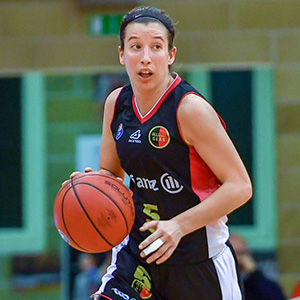
Giulia Arturi
captain Geas Basket

Riccardo Barlaam
correspondent from NewYork of Il Sole 24 Ore

Simone Barlaam
Italian swimmer seven times world champion

Cagliari Calcio
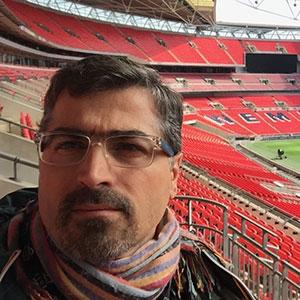
Francesco Caremani
journalist

Massimiliano Castellani
sports journalist for Avvenire

Leonardo Coen
journalist for Il Fatto Quotidiano, former co-founder of La Repubblica

Alberto Cova
olympic long-distance runner (Gold in Los Angeles '84)

Maurizio Damilano
olympic racewalker (Gold in Moscow '80)

Gabriella Dorio
olympic long-distance runner (Gold in Los Angeles '84)

Gianfelice Facchetti
author and director, promoter of the Giacinto Facchetti Foundation

Eleonora Anna Giorgi
race walker (European record holder of the 50 km)

Riccardo Giubilei
vice-president of the Italian Triathlon Federation

Refiloe Jane
AC Milan midfielder and captain of the South African women's national team

Kickers & Vfb Stuttgart supporters

Marco Marchei
olympic marathon runner (Moscow ’80; Los Angeles ’84)
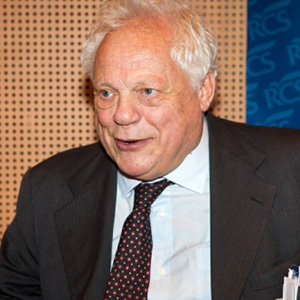
Piergaetano Marchetti
president Corriere della Sera Foundation
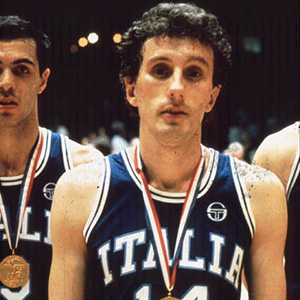
Pierluigi Marzorati
basketball player (Silver in Moscow '80)

Maxime Mbandà
Italian national rugby union player

Michele Mesto
president Stramilano Running Club

Gianni Mura
journalist for La Repubblica
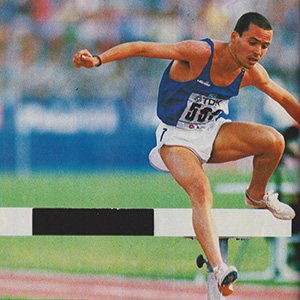
Francesco Panetta
long-distance runner (Gold in Rome '87)
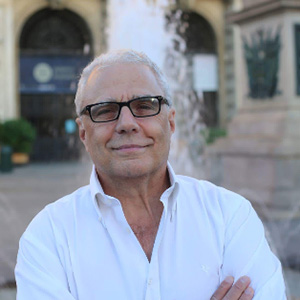
Darwin Pastorin
writer, former director of La7 Sport

Pescara Calcio

Antonio Ruzzo
journalist for Il Giornale and marathon runner

Luca Sacchi
swimmer (Gold in Athens '91)

Adam Smulevich
writer and journalist UCEI
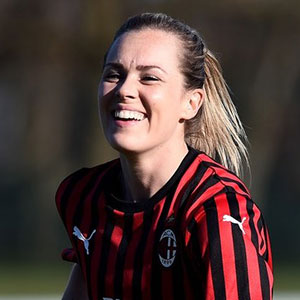
Elisabet Spina
AC Milan women's sector manager
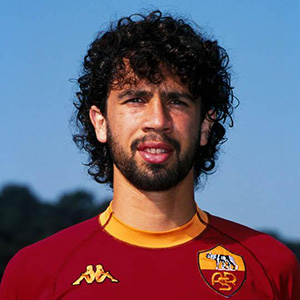
Damiano Tommasi
2001 Italian champion with Roma and president of Assocalciatori

Igor Trocchia
Italian deaf national coach and Knight of the Order of Merit of the Italian Republic
They also joined...
Jean Blanchaert, artist; Francesco Caremani, journalist; Marco Cavallarin, director, cultural operator; Gianluca Colonnello, coach and footballer (105 Serie A appearances); Giovanna Grenga, teacher; Giampaolo Gualla, president of CUS Pro Patria Milano Triathlon; Marcattilio Marcattilii, Sassuolo technical staff; Cristina Miedico, director of the Archaeological Museum of Angera; Giorgio Mortara, UCEI vice president; Ordine dei Giornalisti d’Abruzzo; Luciano Scalettari, journalist; Nadav Tamir, former Israeli diplomat and board member of Mitvim; Roberto Tortora, journalist for SportMediaset; Unione Stampa Sportiva Abruzzo.


